#quick edit: one flaw in this is that you still have to conjure up some BS to give mash what she really needs: a bestie. an oomfie. guda.
Explore tagged Tumblr posts
Text
honestly i wonder if nasu regrets not making mash the main character of fgo
#skeletxt#she would gain so much if you left her backstory intact but put her in the protagonists place#but i also get that originally he wanted to focus on being sheltered with little time left and having someone to spend that time#with and cramming your soul with as much life as you can before its end#i cant call it a waste after mash survives temple of time and will live a longer and happier life then she was designed to#but bc shes not the protagonist we dont get to rlly examine what it means to her to suddenly have so much time#quick edit: one flaw in this is that you still have to conjure up some BS to give mash what she really needs: a bestie. an oomfie. guda.
3 notes
·
View notes
Text
Ash of the Turks meets Genesis for the first time. They bond over Loveless together.
No warnings aside from some swearing and some guns.
Ash was tired. But despite the dark, cloudy sky, her day was far from over.
Her boots clacked against the floor of Shinra HQ with each step she made. The building was beginning to empty up around this time of day, the normal employees thankful to finally be able to return to the comfort of their homes. There were a few left on the lower floors of the building where Ash was, but they quickly averted their eyes upon seeing her.
A pristine black suit, a gun strapped to her thigh, several orbs of Materia hanging from her waist, she was a Turk. Being a Turk went much further than just the suit, of course. It was a way of life. Once you’re a Turk, there’s no such thing as backing out. After all, there’s only one way to truly leave the tight-knit team. But she wasn’t thinking about dying anytime soon. Well, hopefully. No promises. She didn’t have much control over where her on Gaia her missions took her.
But her current mission, however, is one she chose for herself. And she was willing to risk her life to complete it.
To walk to the cafeteria and get a fucking snack.
She had just gotten off assignment. A simple job, just taking out monsters. But she couldn’t help but feel exhausted. Conjuring Blizzaga icicles into the skulls of random beasts wore her out a bit more than she’d like to admit.
A small smile makes its way onto Ash’s face as she approaches the cafeteria. The lights were slightly more dim than usual, but the vending machines with her favorite energy drink and Chocobo Chocolate bars seemed to still be working just fine. She walks into the large room, but is interrupted by... poetry?
“Infinite in mystery is the gift of the goddess. We seek it thus, and take to the sky. Ripples form on the water’s surface, the wandering soul...”
Loveless. “Knows no rest.” She mutters. It was mostly instinctive; Ash knew most of it by heart. It was one of her favorites. In a cafeteria is a young man, not much older than Ash herself. He’s dressed in all red, a sword sharpened to perfection resting beside him as he leaned back against a table, a pocket copy of Loveless in his hand, which was also gloved in red.
He looks up at Ash from the pages of his book, blue-green eyes seeming to almost glow in the dim light of the hollow, empty room. Eyes infused with Mako energy, huh? A SOLDIER. A damn popular one, at that. Genesis, if her memory serves correct. One of the First Class. Who didn’t know him?
“Act I, Loveless.” Ash says, giving him a small nod and pulling out some gil from her suit, popping it into the vending machine against the wall. “Correct.” He says, shutting the book, “Not many know the pages by memory.”
Ash shrugs, “It’s one of my favorite stories.” She reaches into the vending machine to grab her cold drink. She opens it and takes a sip with a sigh of relief. It felt nice to be able to sit back and relax. “Same for me.” He says, and Ash gives him a polite smile. Goodness, they weren’t lying about the firsts being rather... good-looking.
“I certainly didn’t expect to see a SOLDIER here. First class, for that matter.” “And I didn’t expect to see a Turk here.” He spat back, brushing some auburn hair out of his face.
Ash chuckles, “Good to meet ya. I’m Ash. Of the Turks. But you already figured that part out, huh?”
He looked almost amused. “Right, the suits and the mannerisms give it away. You guys really do make being a Turk your whole personality, hm?” He remarks, and Ash just smiles back at him.
“Yeah, it’s our only fatal flaw.”
He looks her up and down.
“... And you are?” She added after a beat of silence.
“Oh, you don’t know?” He crosses his arms over his chest, and that shit-eating smirk of his only seemed to grow. This man is a fucking shitbag, isn’t he? “Oh, no, I do. I was just trying to be polite.”
“Well then, Ash,” He bows, but it seems to be more teasing than respectful, “Commander Genesis Rhapsodos, SOLDIER First Class, at your service.”
Ash holds out her right hand, “A pleasure to make your acquaintance, Commander Rhapsodos.”
Genesis takes it, and his grip is firm. “The feeling is mutual. And I assure you, just Genesis is fine.”
“Well then, just Genesis,” Ash takes a sip from her energy drink, “What brings you here? I’m sure there’s better places to read Loveless than this place.”
Genesis tilts his head in thought, “It’s quiet and dim. Not many come in here at night, and I prefer to be alone when I’m reading.” He absentmindedly runs his fingers over the cover of his book, “And you?”
“I happened to be passing by and needed a quick boost, that’s it. Unless, of course, I’m here to gather intel,” She shrugs, “The world will never know.” She giggles, her eyes now staring at his hands. Or, more importantly, the copy of Loveless he had.
“Hey, that’s one of the older prints, isn’t it?” She asks, pointing to it.
“You’re much too relaxed to be- Huh? Oh, yes. The ones with the white, leather covers are a rare find. This one was actually one of my first copies, it was a gift from a friend.” Responds Genesis.
“You have multiple?! I only have one of the usual copies of both the original and the novelization, and then a special edition of the novelization too. The one with all the fancy gold foil on the cover! It’s so pretty, right?” Genesis noticed how her eyes seemed to glimmer as she spoke, her hands waving around excitedly. He felt somewhat happy. The soft curve of her smile, the way her hair rested on her suit, the red glasses sitting low on her nose, framing large, warm eyes.
It felt like something out of Loveless.
“I own almost all of the editions. Loveless is a... very strong passion of mine.” He chuckles, “It’s such an interesting tale, is it not? The hero was always my favorite.”
“Oh?” Ash takes a seat on the table he was at, taking yet another sip from her drink, “My favorite is the prisoner. I really liked the traveler when I was younger, too, but I’ve come to the realization that he’s a rather bland character.”
Genesis sighs, “That’s true. Wasted potential, honestly. But I try not to think about how things could’ve been too much. I always admired the hero for thinking like that.”
“That’s a good way to think. Especially in this line of work, huh?” She chuckles, “I’ve never been too big on the hero, but I can see why you’d like him. The way he reached out to the traveler in Acts III and IV makes me emotional every single time.”
Genesis nods. “Right. His character gets explored a bit deeper in the play.”
“Ugh, the play?!” Ash pouts, “I haven’t gotten a chance to see it yet! I’m rarely free.”
“It’s well worth the watch, and much of it focuses on the prisoner, if that’s up your alley.”
“Oh, that sounds fun. I’ll try to see if I can snag some tickets, they’re really hard to find.”
Genesis smirks. “I can pull some strings to help with that, if you’d like.”
“That sounds grea-” Ash was interrupted by the ringing of her PHS. She sighs, “Gimme a sec.”
She reaches inside her back pocket and flips the device open, “This is Ash. How can I help, chief?”
Her face hardens into something much more serious than what Genesis saw before, and he can faintly hear some orders over the line, but he couldn’t exactly make out the words.
“... Got it, sir. I’m heading out now.” She responds, shutting the device and shoving it back in her coat. She stands up, tossing the wrapper of her candy bar into the garbage can nearby.
“Welp, nice talking to ya, Genesis!” She gives him a warm smile, and Genesis can’t help but smile back, “But work calls and I need to go before the chief yells at me. He’s a real scary guy.”
Genesis had briefly met the director of the Turks. Verdot, was it? He couldn’t help but agree. Even he felt nervous in his presence.
“It was nice to meet you, Ash.” Says Genesis, giving her a small wave.
“Nice to meet you too. See you around.” Ash takes out the gun strapped to her thigh, nimble fingers flipping open the Materia flap and swapping out the glowing orb for something else on her belt in a matter of mere seconds. This one was green, and seemed to be much more deadly than the yellow one she currently had equipped. She put it back in its holster and ran out of the room.
#even more of clearing out my drafts!#currently working on another one which takes place a bit after this!! where they go on a mission together!!#thank you for reading :D!#tbh loveless is my guilty pleasure ajkefnawklenf i have pretty much all of it memorized#please expect a lot of stuff with turk ash because i love these games so much!!#me x the boys
3 notes
·
View notes
Text
Something New

©NESPRESSO

©DUALIT
“Learn something new. Try something different. Convince yourself that you have no limits” Brian Tracey
Research the Narrative
Point of sale product shots demand a high degree of photographic finish and quality. They should represent a product at its highest quality.
Within your blog/workbook, research product shots and advertising photographers. Demonstrate through annotation, your understanding of detail and presentation of perfection.
Tell the Story
Choose an item that is brand new and blemish free and photograph it to the highest quality possible.
Your object should be photographed with a plain white background to show maximum quality.
Care should be taken to ensure that the best lens and viewpoint are used to maximize the product shape.
Edit and refine: Complete worksheet
High level retouching will be necessary as the object must be as close to perfect as possible. (even brand-new items will have flaws that need fixed)
Be prepared to use a range of retouching techniques to optimise this final file for use as an advertising shot.
The object should be easily dropped into other background so we will look at ways to cut out and present the object as a vector cut-out.
Submit: Final image on A3 canvas, and the object cut out of the background as a PSD. Upload to my city: Upload to my city.
Research
TOP 5: PRODUCT STILL LIFE PHOTOGRAPHERS
January 19, 2016 admin Brands
This week, counting down on our TOP 5, I am going to be listing my favourite product still life photographers, these are purely based on their portfolio and on their popularity.
STILL LIFE PRODUCT PHOTOGRAPHERS
1. Nori Inoguchi
http://www.norimichi.com/
Born in Japan, NORI Inoguchi was educated in New York where he refined his passion for photography. His love of luxury and desire to create visually stunning images inspired him to become a still-life product photographer; NORI seeks to find beauty in all of the objects he shoots. With his sophisticated eye and minimalistic approach, he has exploded onto the world stage and has earned bookings from the best names in fashion, cosmetics and electronics. His career has brought him to Paris, London, NY and even back to his native home of Japan. Using clean, clear and crisp techniques, NORI has created numerous campaigns since 2009 and he has since become a trusted name in the field.
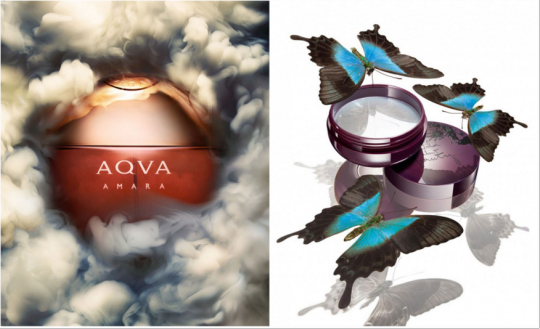
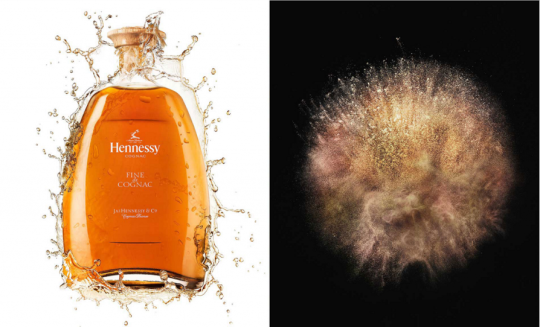
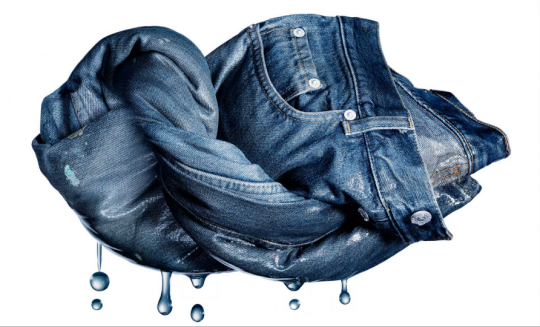
2. Sam Kaplan
http://www.samkaplan.com/
Since striking out on his own in 2011, the 29-year-old Boston native has eschewed high-concept aesthetics and taken a more hands-on approach built around exacting precision—a sculptor’s finely honed interest in process and material. His approach might seem throwback, but that’s part of Kaplan’s appeal. Unlike many of his photographic peers, he had a rather low-tech schooling, studying fine art and art history at Wesleyan University.




3. Lucas Zarebinski
http://www.lucaszarebinski.com/
Lucas grew up in Bielsko Biala, Poland, a small city famous for goose down comforters. When he was 17, he dated an photographer named Olga who later inspired Lucas to become an artist even though he said ” I always wanted to be an artist but I was horrible at drawing.” In the few months he was around her, he realised that he had a talent for still life photography. He then moved to Michigan when he was 20, got a degree in Fine Arts and Photography while he parked cars at night and learned English from his 3 roommates. Fast forward 10 years later. He now live in New York permanently and creates images for a living.
He says in his biography ” I love creating conceptual images, pushing the boundaries of still life photography and resolving client’s problems with an inspiring imagery. I still like red beet soup and blueberry pierogis, but I also like beef with broccoli and spicy tuna rolls these days. ”




4. Jonathan Knowles
http://jknowles.co.uk/
Jonathan Knowles is one of the leading photographers of his generation. Specialising in graphic still life, liquid and beauty, Jonathan’s unique photographic style has earned him award-winning advertising commissions worldwide.
In the past ten years, Jonathan has consistently featured in the ‘200 Best Advertising Photographers in the World’ books. He is one of the top 10 all time award winners in the Graphis Annuals.
Notable commissions include campaigns for many globally recognised brands, such as Coca-Cola, Guinness, and Smirnoff. He is also the creator of the famous O2 bubbles.
He shot the Black Sabbath 13 Album cover, as well as directing and filming the footage that is currently played on stage during performances. Black Sabbath loved the imagery and invited Jonathan to the album launch in New York, where he received a friendly strangle of gratitude from Ozzy.

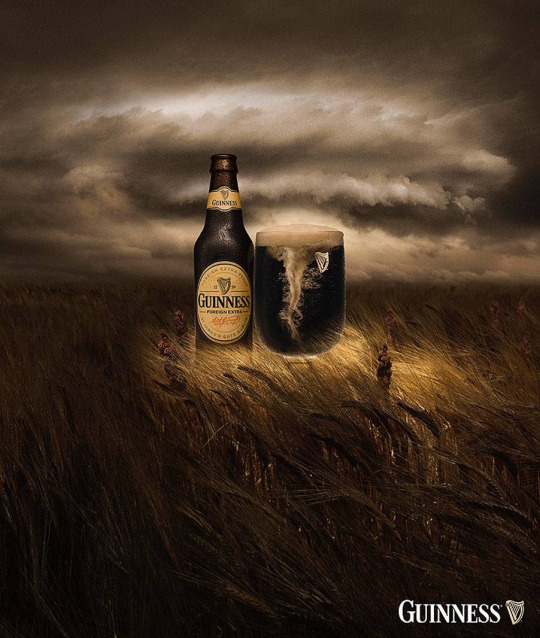


5. Zachary Goulko
http://www.goulko.com/
Like a modern Chiaroscuro master, beauty, product and still life photographer Zachary Goulko harnesses the power of light to infuse two-dimensional images with drama, shape, and volume. His moody, provocative photographs illuminate the power of a single moment: the arresting beauty of a face, the grace of a sculptural curve, the fluid interplay between light and color and form. It is the Moscow-born photographer’s mission to capture the essence of each subject, and to present its beauty to the world in fresh and unexpected ways. He is an exhaustive experimenter, conjuring moods, intertwining lines with rhythm, exploring the architecture of shape and light. His still life and product photographs are clean and precise, yet startlingly intimate. They achieve a level of visual poetry that is unique in the commercial photography world. With a fully equipped high end studio, based in the New York City area, he photographs product and still life images for many world renown beauty and cosmetics brands. Among Goulko’s clients are L’Oréal, Lancôme, Clinique, Estée Lauder, Strivectin, Shu Uemura, Frederic Fekkai, Patek Phillipe, de GRISOGONO, Roger Dubuis, and Zac Posen, . With a background in design and interactive programming, he is constantly seeking new ways to push the technological boundaries of his medium and give full expression to his creative vision.


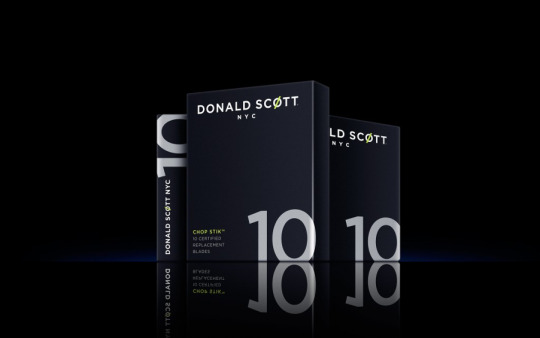

Source: http://claphamstudiohire.com/top-5-product-still-life-photographers/
PRODUCT PHOTOGRAPHY IDEAS
Unusual and even extraordinary product photography ideas are what make many leading brands stay demanding and make people talk about their creative product shots and buy their products. Let me tell you how to do product photography like creative product photographers do. I’ve gathered 20 original product photography techniques and ideas for any product.
What Is Product Photography?
Product photos belong to a branch of commercial photography which is about advertising a product. There are several classical ways of shooting products: product photography on a white background, ghost mannequin, lifestyle product photography, motion images, photos of the product line, tabletop photography, photos of the product being packed, 360 product photography, etc.
Creative Product Photography Ideas
High-quality product photography is important for you and your client. Therefore, it is obligatory to choose the right strategy to demonstrate each product. But many photographers have a moment when they need to diversify the photos or add some creative elements. Here are some different product photography ideas for your inspiration:
1. One Second Before


This is an example of creative product shots that are taken right before something unexpected: an explosion, fall, etc. That is why you as a photographer should manage to catch the moment in the second before it happens.
2. Use Smoke


This product photography idea is a good way to make your product look dramatic. Use the coloured smoke if it is suitable for your product design. To make smoke more accurate, use Photoshop brushes.
3. Floating Products

You may hang some goods to make them look three-dimensional. Hang a product using a line, wire or rope. Then remove background or a line from the photograph of a floating product in Photoshop.
4. Association Game
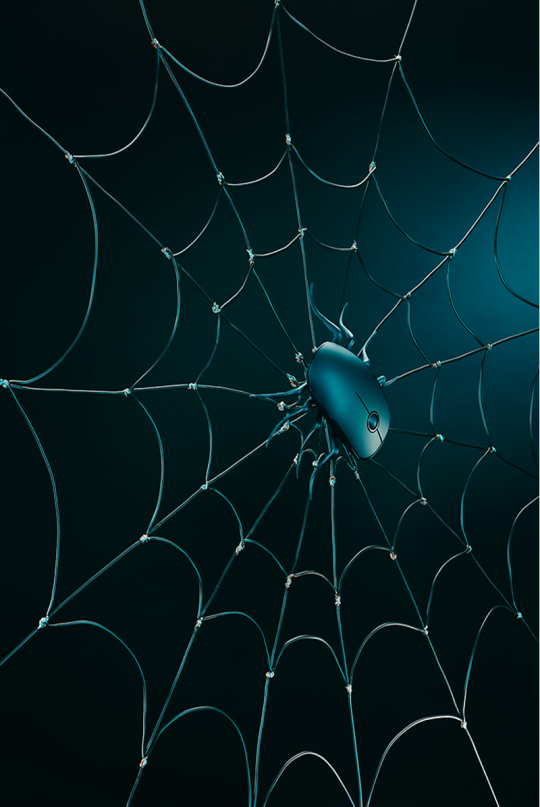

If you need extraordinary product photo for a fashion magazine or billboard advertising, what can be better than funny surrealistic illustrations. Such photographs are typically taken in the studio using special product photography lighting kit and digital drawing techniques in Photoshop.
5. Motion Product Photography


This creative product photography idea is realized by means of short exposure and quick photographer’s and assistants’ actions. The photos are striking for a lot of reasons, but the thing that sticks out at first is how adding motion makes images pop.
6. Photo with Models

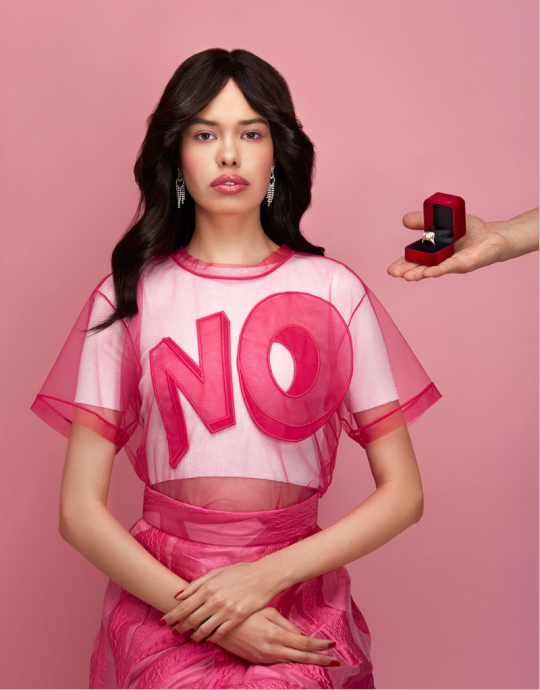
Give your product character and show the features that make it unique. Use different product photography ideas and creative lifestyle to highlight the product usage.
7. Combined Background
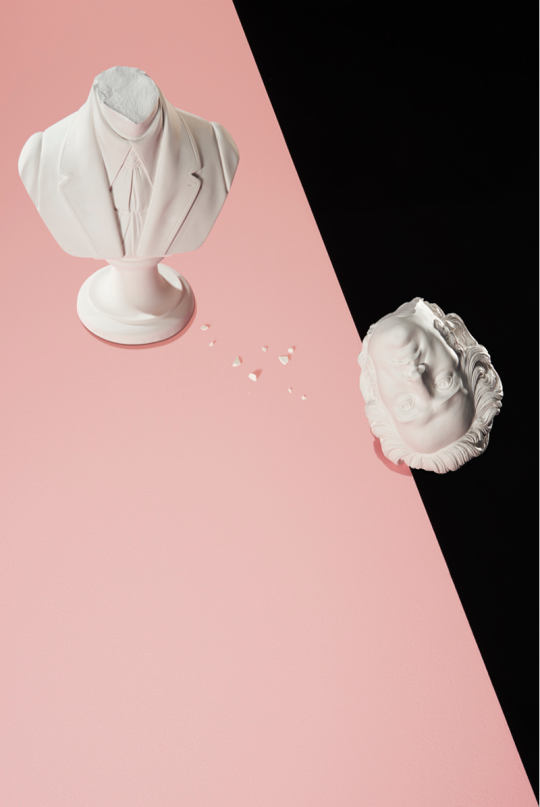

In addition to the familiar white background, I frequently use the background tone that is in harmony with the color of my product. These two product photographs are a good example of colors combination. You may combine the background depending on the product color increasing the image contrast.
8. Crashed or Broken Product

It is pretty a specific idea for product photos and not everyone decides to use it. It attracts people’s attention and evokes pity and interest to the product. It is better to get a shot at the beginning of product crash.
9. Use Reflection


You may use smooth plain covers with high reflectivity as the surface. For example, your product photos may be taken on an average ceramic tile. Make sure, you work in good lighting. In order to take such image, it is necessary to choose the right angle and lighting to get excellent reflection.
10. Product Absorption
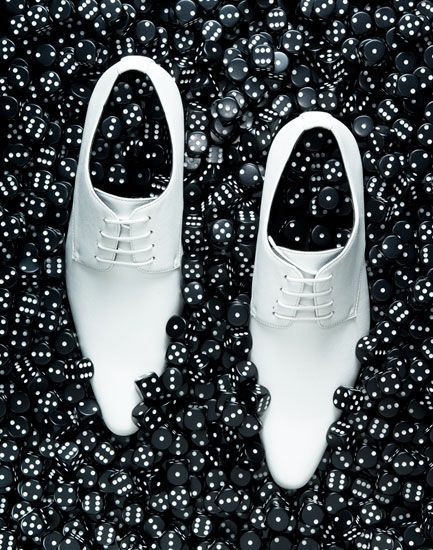

This product photography idea has something to do with putting an object into the sand, water or other materials when you intend to put an accent. You may also use different tiny thematic items in which the product may drown.
11. Product Series

Grouping product images creates almost the same effect as zooming. Comparing several products in one photo a customer understands their main differences, volume, shape, size and other features. Moreover, it can persuade your potential customers to buy the whole kit.
12. Symmetry and Dynamics

To take this kind of product photos you have to put a camera at different angles. However, you should be careful while shooting obscure angles in order not to misrepresent the product. Put other products relatively symmetrical mixing them up with different small details.
13. Emphasize the Product’s Colour
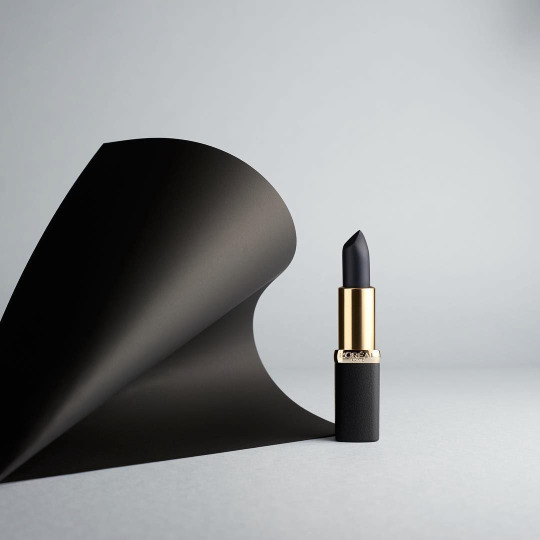
Showing the contrast between the background and the product looks fashionable. But the main difference of this photo is an angle between the surface and the background, which creates a three-dimensional image of the lipstick. This dimensional curved shimmering paper underlines the color and the dimension of the product.
14. Sand Print

This product photography idea requires a special background. It may be usual clay, snow, sand, mastic or similar material.
15. Use Associations

Be as much creative as you can. Here Photoshop is you best friend who will help to realize even the craziest product photography ideas as to shape ketchup in the form of a tongue or a lipstick in the form of ice-cream.
10 Famous Product Photographers
https://spark.adobe.com/page/98pcx7gV8QkNW/
3 notes
·
View notes
Text
strategy
warnings: food mentions, general tension, mentions of the dark sides
words: 1,205
If someone took barely a glance at the mindscape, it could almost be perceived as a normal day.
Patton was at the counter, mixing something for some delicious baked good. Logan was sitting at the kitchen table, surrounded by books, Roman sitting opposite him, sharpening his sword and whistling a Disney song. Virgil, perched on the counter, eyes carefully tracking Roman’s constant movements, straying occasionally to look at Patton or Logan.
If someone took a closer glance, they would notice Virgil’s white-knuckled grip on his own hoodie. That Patton was mixing his batter far beyond the point of necessity, movements jerky as Patton gnawed at his lip. The disheveled state of Logan’s hair, the messy notes beside him, the way he worried the corner of the page between his fingers. The song Roman was whistling was much slower than the original, like a dirge, the constant snick-snick-snick of the whetstone providing an uneven kind of percussion.
I’ve got no strings, to hold me down, to make me fret, or make me frown—
“Pinocchio,” Virgil bit out, and everyone stilled as the tenuous peace broke. “Really? That’s the song stuck in our head today?”
“I don’t always pick it,” Roman snaps, own grip tightening at his sword, removing the whetstone from the blade. “Outside influence always—“
“It’s not outside,” Patton said, soft, not having turned from his bowl, and both Roman and Virgil glanced at his back, the line of Patton’s shoulders too high to sell that he wasn’t upset.
Roman huffed out a breath. “Yes. Fine. Insider influence always holds some sway.”
Virgil makes a scoffing noise in the back of his throat, foot thumping against a cabinet as he directed his glower out of the window.
Logan’s pen scritch-scritched against the paper, hardly slowing his hand as he spoke. “We knew this day was coming.”
“Not so soon,” Roman said. “Not so well hidden.”
Virgil glanced over at Patton. “You really didn’t know anything was wrong?”
Patton shook his head. “I was just in my room,” he said, and then, “Hand me the nonstick sheet pan, kiddo, please.”
Virgil hopped off the counter and started clattering in the cabinet, perhaps a bit more than necessary, before handing Patton the necessary pan and hopping back onto the counter, arms crossing over his stomach.
“Nothing?” Roman pressed. “Nothing at all?”
Patton shrugged, and admitted, “I was a bit busy thinking over the whole lying thing. I didn’t realize you all had—met up.”
“The last time, they took advantage of us when we were separated,” Logan said. “Something we shall endeavor to do as little as possible. Of course, it’s impossible to stay together all the time—“
“They’re not all coming back right away,” Patton said, dumping out his batter perhaps a bit too quick, a splash landing on the counter. He grimaced at it.
“They will. They have.” Roman said, trading out his whetstone for polishing materials.
Logan’s grip tightened on the pen, and perhaps it was a squeeze too far, because the cheap pen snapped in his hand. Logan closed his eyes, let out a forceful huff of air through his nose, and conjured a new one, tossing the broken one towards the other three he’d snapped.
“There are too many variables when it comes to them,” Logan said, voice purposefully calm. “We know their old tricks, of course. But they will have likely changed and grown as we have. Even in the space of the last year and a half, our development has been immense. We can assume that theirs likely has, as well. Therefore, we can make estimations and plans contingent upon their previous behaviors and habits, but they could be strategizing, too. Planning.”
“None of them can plan like you,” Patton said, firm, wiping up the spill with a paper towel. “We all have strengths that they don’t have—“
“And vice versa,” Logan said, terse. “These conflicts come down to force of will, an element of surprise, and...” His eyes went to Virgil, and then focused down on his page of notes. “These plans are inherently flawed. But we have no other basis to build our strategy from, so they will have to do.”
“A flawed idea is better than no idea at all,” Roman said, tilting his blade so it caught the light. “It can be improved upon later. Isn’t that what you’re always telling me? First drafts. Hardly flawed.”
There was the soft clang of the oven door opening and closing, the soft thump of Patton depositing his oven mitts on the counter, and then a little grunt as Patton hopped up on the counter, keeping a careful amount of space between himself and Virgil, and Logan and Roman turned to more fully face the other two.
“So,” Logan said. “Objectively, there is very little we know about what they will do next.”
“Subjectively, we’re fucked,” Virgil said, under his breath, and for once, Patton didn’t scold him for the language.
“We can’t have that kind of attitude,” Roman said, flicking his hand in a weak approximation of his usual grandeur.
“It’s my thing,” Virgil said.
“What, defeatism?” Roman said, angling a critical glance at Virgil, who glowered back at him.
“Virgil’s no defeatist,” Logan said, edged on a sigh.
“Tensions are going to rise,” Patton said, “but we have to stick together, okay? Logan’s right. Bad things happened when we separated.”
“If we stick together, we can’t lose,” Roman said, forcefully cheerful.
“Exactly!” Patton said.
Logan and Virgil exchanged glances, and Logan scratched the tip of his pen absently over his paper, clearing his throat.
“So, of course, I have a relatively clear memory of what happened the last couple of times we... clashed, but there were, of course, moments I... was not physically present.”
The room went quiet again.
“There were moments that we all missed out on,” Patton said, faint. “As a matter of fact, you’ll have to catch me up on what he did, while I was gone. When he was pretending to be me.”
“Not much,” Logan said, listless. “He attempted to goad us into lies. There was a theatrical production. He attempted to goad us into more lies. The usual.”
“Theatrical production,” Patton murmured, glancing over, and Roman’s grip tightened on his sword’s handle before he smiled, sword flashing in the light.
“Well, at least I got to act with Thomas,” Roman said grandly. “The first of many phenomenal shows, I’m sure.”
“Roman,” Patton began, soft, and Roman said tightly, “We were talking strategy. Logan, what are your plans? Maybe we’ll have something to offer.”
Logan glanced at Roman, and straightened a pile of notes. “Perhaps it should wait until we have Patton’s food. It’ll be a long talk.”
“We’re in for a lot of long talks,” Virgil said, curling in tighter on himself.
“As long as we’re together,” Patton said, obstinate, and smiled brightly. “Everything’s gonna be okay. It’ll be fine.”
None of them acknowledged the hidden, distant expectation to turn and see someone wearing a bowler hat behind them. Roman’s grip tightened on his sword, and he took in another even breath.
“It’ll be a long night,” Logan said, and pushed his hair out of his face again. “Let’s get to editing.”
taglist: @somewhatsanders @tommysandypantsisasolarnymph @erlenmeyertrash @lindesensate @lakesandquarries @lacandra @midnightcandy @jughead-is-canonically-aroace @analogicalisreal @stay-in--place
240 notes
·
View notes
Photo

25 for 21
Film critics have been playing an interesting and unexpected game this year. They’ve been naming the 25 Best Films of the 21st Century (so far). It was Manohla Dargis and A.O. Scott of the New York Times who first got the ball rolling, and what follows represents my two cents in this regard. As to what ‘best’ means, these are all movies that I either love or admire; that I can watch over and over; that I have watched over and over; and that I think will stand the test of time.
It obviously goes without saying that I don’t see everything. And that there are (many different parts of) many (different) national cinemas that pass me by completely. There is also only one woman filmmaker on (the first part of) this list. Such absences are a gaping big part of many of these 25 for 21 lists. The Times roster, for example, includes only four films by women, and one of these is actually illegible. Agnès Varda’s The Gleaners and I was released in 2000 and—pace the Times—the 21st century actually begins on 1 January 2001. As to the other three films by women on the Times list, Kathryn Bigelow’s Hurt Locker does nothing for me, while I think that White Material and Wendy and Lucy are far from Claire Denis and Kelly Reichardt’s best (though the final third of Reichardt’s Certain Women would for sure have made my list if it had been released on its own as a short). However, I would argue that Sally Menke (who edited all of Quentin Tarantino’s films prior to her untimely death in 2010) was both integral to and partly constitutive of the three Tarantino films on this list (and that the sharp drop in the quality of his output post-Basterds is in large part due to her loss).
The format of my list is a bit odd. It comprises a run of 14 filmmakers responsible for one or more best film-objects. These filmmakers (and each of their films) are arranged in rough order of their best-ness. This list is followed by a number of special mentions (in rough order of their best-ness, too). Also included are a number of (scattershot) observations.
[Revised and reshuffled April 2019]
Terrence Malick — The Tree of Life, The New World, To the Wonder
For a blog where I don’t write much, I’ve managed to write a great deal about both The Tree of Life and To the Wonder — two extraordinary films in two extraordinarily different registers. The former is a form of prayer and—to my mind—not just the Best Film of the 21st Century (so far), but one of the all-time greats. Malick attempts nothing less in The Tree of Life than the architecture of a theology. His ambition is Tarkovskian/Kubrickian in its scale—and then bigger still. The film races for the edges of space and time, and then dives deep into the singularities of memory and desire; the exercises of mystery and grace, intellect and will. It functions in a mode where beauty is both an expression of God and a path to God, and where art (on life) is both a benediction and a judgment. What ultimately makes the film so powerful, though, can be summed up in Goethe’s line, “half children’s games, half God at heart,” for what Malick attempts in The Tree of Life is to fold together both the time spans of childhood and the universe: we’re told that God has no beginning and no end, and Malick’s boldest move in The Tree of Life is to enfold a story of childhood into the expanse of this infinity, conjuring thereby the endless timelessness of childhood. To borrow from Wordsworth, Malick’s recollection of childhood works as an intimation of immortality.
It is this extended depiction of childhood in The Tree of Life—unrivalled in the movies except for a few brief moments in Tarkovsky’s Mirror—that represents the film’s highlight and its crux. Forget the sublime movements of Malick’s great cosmo-drama; once the films settles down into small-town Texas, you get to really see the world: its shapes and its shadows and how strange and beautiful it is. You’re reminded that the world is made for children. The real world. They’re the ones who climb trees and jump in puddles and roll in the grass. Malick’s film performs Wittgenstein’s dictum: “Just let nature speak and acknowledge only one thing higher than nature, but not what others might think.” And what The Tree of Life holds high(est) is childhood—that sense and experience of the world; that way of being in the world. Where leaves scatter and shadows dance high and piggledy and upside-down across the lawn and in the sunlight of the street; where a bone found in a field descends from the dinosaurs, and a frog launched skywards in a firework reaches the moon; where furniture shifts of its own and time moves unprecedentedly slow; where games get out of hand at a swivel of the pivot so quick as the shift from saints into devils; where sibling hatred flares spitting bright and burns back into goodwill in the same bright flash; where the discovery of the mirror and of (cruel) mimicry are perfect mysteries unfolding new laws of interpretation for everything else around you; where shame knots into perfect ecstasies and church is endlessly dull. The film is about all those days and years and slow dusks spent circling your childhood home—and how all those twilit evenings create the fundament. “Once, when there was a choice of being kings or messengers, we, being children, chose to be messengers, arms and legs flying as we romped from castle to castle” (Guy Davenport). The Tree of Life is the message that says it was all most real when we were first setting out.
David Lynch — Mulholland Drive, Twin Peaks: The Return, Inland Empire
Everything in Lynch is uncanny, unmoored and out of joint, and the velocity of this disjoint unravelling crescendos across the course of his work this century: Mulholland Drive, Inland Empire and Twin Peaks: The Return. And while the latter is a TV show, the Twin Peaks universe already venned the cinematic with Fire Walk With Me and Lynch spoke about The Return as an eighteen hour movie, so I’m happy to count it as a film-object. I also happen to think that The Return is Lynch’s masterwork. I’ve placed it second to Mulholland Drive only because it’s an eighteen hour movie that I’ve only seen once; it would need multiple viewings both to process and to say anything more meaningful about it than that it’s a form filled with endless, confused, beautiful, black feeling. Like all his work, The Return demonstrates Lynch’s commitment to working primarily in the register of atmospherics and affect rather than plot. Its emotional resonance is as profound as its willingness to defy concrete narrative explanation and accommodate uncanny intrusions and extrusions upon narrative law. Watching the series feels like you see but that you can’t see.
Nevertheless—and I’m remembering now the dark cracks that radiate like some final, fatal, flaw through the rest of the series from the extraordinary nuclear bang of Part 8—I think The Return is primarily about the eruption of evil into the everyday. Part 8 is an episode occasioned by (and which briefly depicts) an actual historical event: the 1945 atomic tests at White Sands. But though it might appear so, I don’t think the episode depicts the birth of BOB. BOB’s violence is more community-centred, visited upon individual bodies; he’s no awesome burst of atomic energy. If anything, Part 8 tells the story of a flare: a bright flash sent up by mankind indicating to the evil already inherent in the fabric of existence that it was safe to walk out more freely in the world. Thus the woodsmen; that slumbrous incantation sent out over the radio waves; and that egg-hatched, insect-winged frog’s journey from the site of the atomic test into an unconscious girl’s room and down her throat. This is the water and this is the well. Drink full and descend. Part 8 represents the metonymic genesis of the hole in the universe that Laura Palmer left behind, while The Return as a whole represents a shout into that hole, an attempt—like Fire Walk With Me—to wake us again to the horror of abuse and murder at the centre of the Twin Peaks story. That plot was always meant to be the centre of the show, but it gradually fell away, partly due to the realities of TV, and perhaps partly because Lynch stepped away during season two of the show’s original run. The story of Twin Peaks, and the show itself, evolved so much that its central premise was obscured or—more properly—collectively forgotten by its audience in favour of the show’s folksier elements. But this central horror returns with a vengeance in The Return.
Just like Fire Walk With Me, which reminded us that this was all Laura’s story, The Return descends into the sheer fish-scale clammy cold of trauma and “the evil that men do” (which is how Albert theorises BOB). The Return is like being thrown into a disoriented black hole of doublings and doppelgängers. All these doubles and split-selves represent the fractured results of various evils: they are attempts to keep on existing in the world after the worst has had its way with you. Thus, while Cooper’s decision (after 25 years in the Black Lodge, and fifteen episodes as Dougie Jones) to step back into the place he has recently escaped (and into the night Laura died) may well represent a vain attempt to rescue Laura, I think it should properly be read as part of Twin Peaks’ wider attempt to understand the source of violence and the possibility of self-sacrifice as a way to bear it. Doubled and doppelgängered and split throughout (like the many female victims of male violence throughout the show) the briefly whole Cooper goes back. One of the finest and kindest moments of the show is Gordon Cole’s farewell to him before he steps through that locked door: “Be thinking of you, Coop.” There is so much warmth and kind-heartedness in that moment—and throughout the show—even in spite of the fact that what Lynch sees out there is primarily dark matter, thick and unknowable and aching to take shape as a bad, bad world. Lynch’s question—broached most forcefully in the show’s final shot, where the new/the non- Laura hears her mother’s voice calling as though to rouse her from sleep, and screams—is always this: what is she, and what are we, waking to?
P.T. Anderson — The Master, There Will Be Blood
In one of the releases of his New Biographical Dictionary of Film prior to 2007, David Thomson predicted that Anderson would go on to make the great American movie (i.e. the great movie about America). And he did: There Will Be Blood. Then he followed it with an even better film: The Master.
There Will Be Blood is an origins story, vivifying the (holy) spirit of American capitalism and its push-n-pull of faith-n-greed. Lit by a crazy holy-roller dynamism and anchored in the most precise of formal techniques, it’s difficult to think of a film that so effortlessly captures the recklessness of the past several centuries in the West. And which performs it all with so much poetry. (Just think of that moment where the father baptises the child in oil!) But if There Will Be Blood is an origins story, then The Master is the story mid-stream; the story gliding along unknowing under everything that is happening, then jumping out to see where it is, lit with quicksilver flashes of insight like fish breaking the surface.
The film’s avatar is Joaquin Phoenix, dancing the twisted tight-rope choreography of a misfitted and jitterbugged amateur chemist. Fortified by ship fuels and solvents, cough medicines and dark-room chemicals, spirits, pills and paint thinners, The Master launches straight into the milky-way nightscape of his mind in its opening shot (of a ship’s frothing wake) and then cuts to Phoenix’s face. Projected there is the frightening play of a fierce intelligence at the limits beyond boredom. The film then hurls us into his unhinged state-of-being in-the-world, like a crystalline stream of ship fuel shot through a mind already operating in flashes of black and night and blinding white; like a jittering bug in black and white ‘round a light. I wrote about The Master before as a kind of elegant high-wire tone poem, borne out of an electric blue movie-saturated brume, but could not believe—watching the film again recently—how far Phoenix embodies its project. The slant and alienated mind he projects, and the weird slow-dance he performs with Philip Seymour Hoffman’s character — all this somehow affects the (soul) fractures of our post-nuclear age and its competing charismas and shape-shifting ideologies. I think this film can only get more and more contemporary.
Quentin Tarantino — Inglourious Basterds, Death Proof, Kill Bill Vols 1–2
There’s not much more to say about these three choices than that Inglourious Basterds, Death Proof and Kill Bill are almost perfect movie movies in that pure-strain, sheer-thrill, sex-as-sound-track, motion-picture-mode that represents Tarantino at his best. So there’s only a little regret in me saying that there’s a universe where Tarantino became the feminist crime movie guy instead of the stylised violence guy, and in me noting that—in spite of the overwhelming cinematic verve of Kill Bill and Death Proof, and the scope and deeply self-reflexive investigation of screen violence in Inglourious Basterds—I get a bit wistful for that world every time I sit down with Jackie Brown. And while saying this might sound like praise for Jackie Brown at the expense of the three Tarantino films that made this list, this is not my intent. (After all, where Kill Bill Vols 1–2 picks up on the themes of Tarantino’s last 90s film, I’m tempted to place it above Basterds and Death Proof as his best this century so far. Where what I’ve got to say about Jackie Brown sounds like praise at the expense of Django Unchained and The Hateful Eight, though, this is completely my intent.)
Part of what sets Jackie Brown apart from Tarantino’s other films is how grounded its characters are. They have style, but that style is earned. It never veers into the affectations and (sometimes effective) cartoonish licks of Tarantino’s earlier and later output. Their motivations are small, and the film’s big set-piece scheme is necessary and organic. Jackie Brown comes out of a real place—the urban spaces of Southern California—and not the subsequent movie-verse of Tarantino’s own making. It’s meditative and it’s observant and it has room for big social truths. There’s no other movie by Tarantino that really goes after a theme the way Jackie Brown sinks its teeth into the business of getting older and having to rectify where you thought your life would go and who you thought you’d be. More importantly, though, the film’s also about feeling like—as a black woman—you’ve run out of the roles that society permits you to inhabit. Jackie Brown is deeply, passionately, and intersectionally feminist in a way that Tarantino hasn’t attempted since. Just picture the film’s intro and the way Pam Grier’s walk morphs into a half-run and then a mad, high-heeled sprint — all to make it on time to her shitty job, and only to be told by Michael Keaton’s ATF agent that he’s leveraging the future she’s scraped together in order to further his career. This film’s so much more thoughtful about what crime actually is and how it actually comes about than almost anything else in the genre; just the contrast between Ordell, Jackie, and Louis’ motivations for the crimes they commit is such a rich dramatic space to work in.
As to the films that followed Jackie Brown, both volumes of Kill Bill—which Tarantino intended as one film—remain the closest Tarantino has come to building on the best of his 90s projects. Vol. 1 is almost wholly an homage to a thousand kung fu movies, while Vol. 2 deepens and explores the relationship between Beatrix and Bill. But if you’ve seen enough wuxia films, this movement across the film’s halves isn’t so surprising — this is a genre that lives for complicated character relationships. Nevertheless, it’s still a deep and silent thrill to reach the final portion of Vol. 2 and realise that the Bride’s brilliantly quiet showdown with Bill—Tarantino’s most effective meditation on mortality since Jackie Brown—consists almost solely of 45 minutes of Beatrix and Bill just talking.
Apichatpong Weerasethakul — Uncle Boonmee Who Can Recall His Past Lives, Tropical Malady, Cemetery of Splendour
Alexei German — Hard to Be a God
I wrote about this here.
The Coen Bros — Burn after Reading
This film is excoriating. It’s also funnier and funnier each of the thirty-plus times I’ve seen it.
Special mentions to No Country for Old Men (a film to study endlessly, but which I don’t love) and A Serious Man, whose metaphysical angst beats out Inside Llewyn Davis for me. I also still think that A Serious Man is the prime example of the perfect little film — a film that gets its every frame right, but whose ability to avoid cracks or flaws or strain comes about because the film’s scope or subject or reach doesn’t ask that it strike out quite so far as to break the vessels. Odd to say about a film that engages both the book of Job and Ecclesiastes.
David Cronenberg — A History of Violence
Lars von Trier — Melancholia, Dogville
Dogville’s better, but whatever. Melancholia comes first for me. I’d also like to give a special mention to Antichrist, which was properly unhinged (and so much more insane and perfectly tilted than anything else in recent memory). Like much of von Trier’s recent output, Antichrist was a study in perverse, promiscuous storytelling—cycling all polymorphous-like from abject tragedy through absurdity to sexual excitation and horror and back again through the same warped register, but never once cheapening what’s serious or making you feel guilty about what’s funny. Many of von Trier’s recent films have also been about the paralysis of depression, and this is reflected not just in their dramatic contents but their style. Like Antichrist, Melancholia begins with a crazed operatic sequence in maddened slow motion. It’s all about the agony of stasis, and the soul’s domination by an all-enveloping (lack of) emotion that swallows everything in its path. This crystallises in Melancholia’s master image—an all-consuming silvery orb—a symbol of pure geometrical stasis constructed to match the dominant characteristic of clinical depression.
Carlos Reygadas — Stellet Licht
Special mention also to the opening scenes of Post Tenebras Lux: the startling build up of that thunderstorm as purple twilight falls around the child in the field, and the uncanny entrance of that bright red animated demon (with non-animated toolbox) into the sleeping house.
Werner Herzog — Bad Lieutenant: Port of Call New Orleans
This film is demented. A deranged and degraded urban swamp nocturne. A piece of close portraiture that places Nic Cage under the camera eye only to watch him unspool like some delirious force of nature. Just think of Scorsese’s inability (even to the detriment of his films) to turn or cut away from Joe Pesci in Goodfellas and Casino, and you’re close to what’s happening here: a battened-down camera registering an immense whirlwind of energy roar through the shutter. Herzog is like the moth battering itself up against the lit glass, unable to cut away from Cage even as the film singes. It’s like being back in the 70s and 80s and watching him watch Kinski. And while Cage is no Kinski, this film revolves around him like Herzog’s earlier masterpieces revolved around the German. You can’t look away.
Asghar Farhadi — A Separation, The Past
Farhadi’s such an understated, fluid, and cunning formalist. His precision—and his fragmented and constructivist organisation of domestic spaces—is thrilling in the quietest key, even as his narratives build to perfectly pitched slow-motion disaster-climaxes along the weave of Aristotle’s ‘complex plan.’
Maren Ade — Toni Erdmann
Manoel de Oliveira — The Strange Case of Angelica
Many of the films on this list—like most masterworks—are to some extent an allegory of their own making. But this is most pronounced in The Strange Case of Angelica (perhaps de Oliveira’s most extended meditation on the medium of cinema). Angelica tells a ghost story, but what are ghosts in the movies but the past cut or superimposed into the present? The story Angelica really tells is all about film’s unique capacity to embalm time—to preserve time and time’s passing through the photographic registration of light, and to thereby preserve indefinitely a fragment of the world and its duration. In Angelica, we find Bazin’s beautiful ontology of the movies brought forward, dusted off from his teleology of the image, and thrust onto the Mulveyan/Lacanian spectatorial axis. Isaac, a young photographer, is asked by the owners of a hotel to take a death portrait of their deceased daughter, and de Oliveira’s film depicts his slow enslavement to the images he takes of the beautiful Angelica. The scenes of Isaac repeatedly removing his photographs from his stop-bath and hanging them to dry on the line—one ‘frame’ after the other—points not just to photography ‘becoming’ cinema, but to the ‘dead’ or frozen image waking to life and overtaking its maker, somehow becoming more real than the world from which it was obtained. Isaac’s desiring gaze is an animating one—just like ours in the dark of the movie theatre, and the moviemaker’s behind the camera and in the dark of the editing room. The film’s parable of amour fou, in which the outsider projects his fantasy life onto the passive screen of the inert object, evokes that wicked thrill of light becoming emulsion.
Two Days, One Night (The Dardennes) No Country for Old Men (The Coens) Birth (Jonathan Glazer) Under the Skin (Jonathan Glazer, who understandably but unfortunately could not find a way to to sustain the extraordinary achievements of the film’s first hour) The Headless Woman (Lucrecia Martel) Holy Motors (Leos Carax) Adaptation (Spike Jonze) Once Upon a Time in Anatolia and Winter Sleep (Nuri Bilge Ceylan, master of that space where landscape meets and maps onto psychology) I Am Love (Luca Guadagnino) Children of Men (Alfonso Cuarón) The Counselor (Ridley Scott) The Grand Budapest Hotel (Wes Anderson) Fat Girl (Catherine Breillat) The Life Aquatic (Wes Anderson) Elle (Paul Verhoeven) A Serious Man (The Coens) Irreversible (Gaspar Noé, whose subsequent output makes plain that Irreversible’s brilliance was totally accidental; nevertheless, it’s an almost unwatchable formal masterwork) This is 40 (Judd Apatow)
Films that need a little time to settle: Zama (Lucrecia Martel)
0 notes